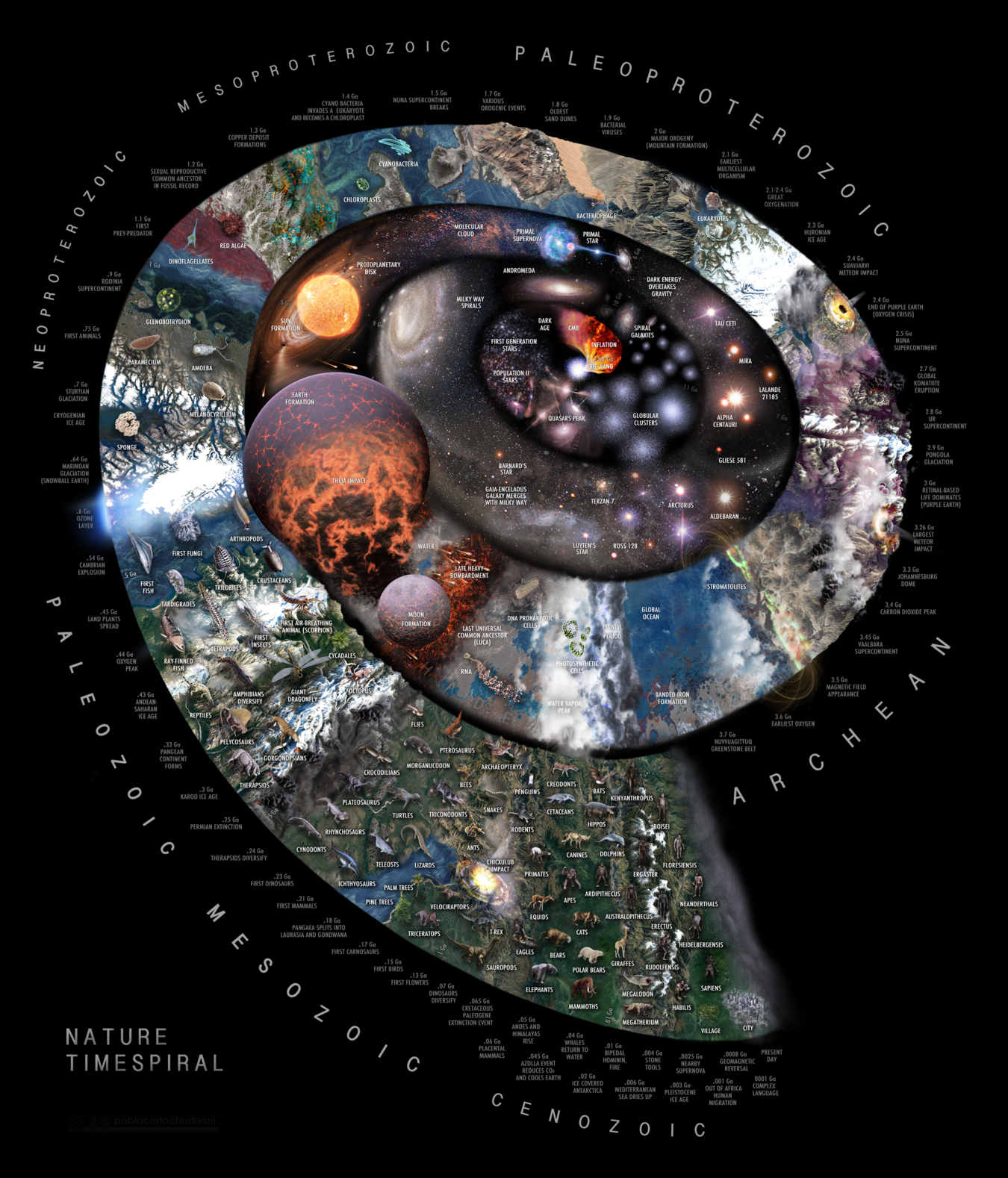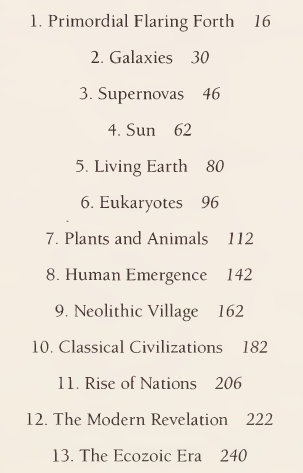Place
Definition
We define place as a spatial and physical matrix that limits the formation of patterns but also as a cultural product that underlies group learning, behaviour, and ecosystems.
-
Sense of place is formed through the interaction of memory (written or oral history, pattern, instinct, etc.) with the physical world
-
Formation of sense of place depends on the subjectivity of agents and their perceptual and cognitive capabilities (capacity to perceive and reflect upon the physical world)
- The cognitive capabilities (Private) of agents also dictate their ability to construct and interpret complex physical artefacts that enrich a sense of place
-
Agents create place and place influences agents
- Agents perceive fractions of whole places depending on the Relationships they possess
Examples
Formation and evolution of the solar system

[w]e have at the present time a distorted mode of human presence upon the Earth. We are somehow failing in the fundamental role that we should be fulfilling—the role of enabling the Earth and the universe entire to reflect on and to celebrate themselves, and the deep mysteries they bear within them, in a special mode of conscious self-awareness. 3

The story of the universe in chapter titles
Children
Footnotes
Tim Cresswell, Place: A Short Introduction, Short Introductions to Geography (Malden: Blackwell, 2004), 1.˄
Daniel R. Williams, “Making Sense of ‘Place’: Reflections on Pluralism and Positionality in Place Research,” Landscape and Urban Planning 131 (2014): 74–82, https://doi.org/10/f6mhzd.˄
Swimme, Brian, and Thomas Berry. The Universe Story: From the Primordial Flaring Forth to the Ecozoic Era—A Celebration of the Unfolding of the Cosmos. New York: HarperCollins, 1992.˄
Backlinks